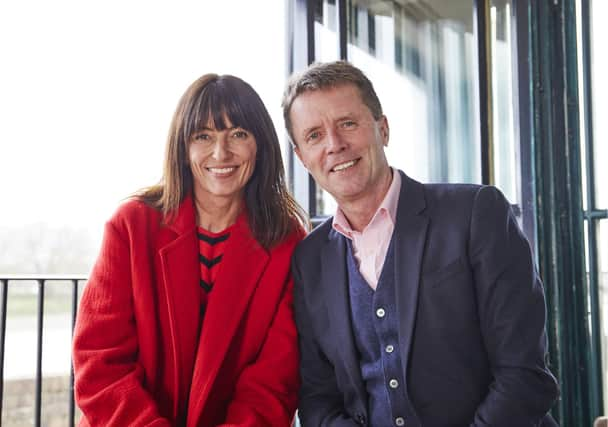You can find your own Long Lost Family - Dr Gary Clapton


Presented by Davina McCall and Nicky Campbell, each series has seven episodes in which family members are helped to find ‘lost’ relatives. Though not all are separated from each other because of adoption, there’s invariably at least one such case in each episode. The reasons for each family's estrangement are explored, the detective work is tracked and we witness the complex and emotional process of finding each lost relative before they are reunited. The background to each case, the social context, and reasons why these estrangements occurred are sketched out. A single teenage mum who felt unable to keep her baby, the father who left, the twin sisters separated at birth and placed in different foster homes. Each relative is guided and supported through the process of tracing, very much as we do at Birthlink.
The first episode of the new series helped Pauline find the daughter she was forced to give up fifty years ago when she was 15. In an account that is familiar to us, Pauline was expelled from school, sent away for the birth and told by her father that she wouldn’t be bringing her baby home. Pauline’s baby (who she named Louise but was adopted as Carol) grew up only two miles away and for three years before the programme became involved, had been following Pauline on Pauline’s Facebook page. Too frightened of being rejected, Carol never did anything else to contact her birth mother, though in a very moving moment, Carol showed that she had Pauline’s photo as the home page on her phone.
Advertisement
Hide AdAdvertisement
Hide AdThe Long Lost Family team found Carol and helped the two of them to meet. We in Birthlink have always been chary about having reunions filmed or third parties being present, however part of the deal about being on the programme and getting help with search, contact and setting up a meeting, is agreement to being filmed. The episode’s meeting made for powerful viewing. Pauline on the run-up to it: “I need to tell her she was never a secret”. Carol (on hearing that Pauline had been found): “Whoo, Hoo!”, saying after their meeting in a café half-way between their homes, “now I feel that my life is complete”. Whatever the ethical merits of filming such a powerfully emotional process as the searches of two people for each other and their meeting, Pauline and Carol’s story is more likely than not to encourage others, similarly separated, to take the leap.


Each episode of Long Lost Family shuttles between at least two stories. Alongside Pauline and Carol’s story, we learnt of Donna and Phil. Donna spent eight years in the care system (ten foster homes, and three moves in one month alone) before she was eventually adopted, unlike her brother Phil who was comfortably adopted as baby and was now living just three miles away from Donna. After being brought together with Phil, Donna “can relax now”, knowing that he not suffered the same type of care experience that she had.
Each Long Lost Family ends with a set of end captions on developments since the meeting, (“texting every day”) and photographs of (newly) wider family networks, and, by and large, these are usually encouraging. This is hugely affirming for those who worry that reaching out to someone from whom they have been separated might ‘open a can of worms’.
We welcome any publicity about the needs and struggles of people separated by adoption if it means we can help more people find and meet each other. Long Lost Family delivers this sensitively and is a must-watch.
Dr Gary Clapton, reader in social work and programme director for BSc (Hons) in social work, Edinburgh University.
Comments
Want to join the conversation? Please or to comment on this article.